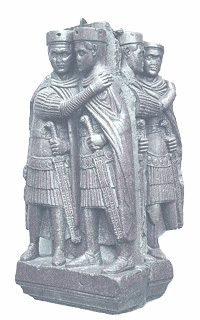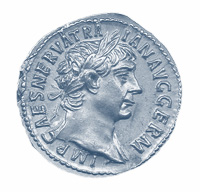The Panegyrici Latini Project
The Speeches
Panegyrici Latini is the name given to a collection of twelve speeches of praise delivered to various Roman emperors between the years 100 and 389CE.
The collection begins with a long speech by Pliny the Younger, to the Emperor Trajan (in 100CE); the eleven that follow are shorter, and date to the late third and fourth centuries, addressed to various emperors, by different authors (many of them anonymous) in a range of places. The collection was put together in the last decade of the fourth century, and was ‘rediscovered’ in 1433 in Mainz. Despite the warm reception it immediately received and the influence the collection had on renaissance epideictic (speeches of praise and blame), the Panegyrici Latini have never been the focus of the dedicated attention of modern literary critics.
The second half of the 20th century saw the speeches frequently quarried by ancient historians for details to inform social, military and political enquiries, helped by their translation into French (Galletier 1949-55) and English (Radice 1969, Nixon and Rodgers 1994); the same publications, and that of Durry (1938) also illuminated the historical contexts and references within the speeches. But the speeches remain essentially untouched by literary critics, although they constitute the only surviving body of imperial Latin oratory to survive complete, and the biggest collection of classical Latin oratory after the works of Cicero.
The Project
The Panegyrici Latini Project is a collaborative research venture between Liverpool and St Andrews Universities. It coordinates research into the historical contexts and rhetorical, syntactical, stylistic, lexical and intertextual character of all twelve speeches. The research tools include reference works such as literary search engines, dictionaries, concordances and thesauruses, and other literary texts, in both Latin and Greek, and catalogues of coins and inscriptions. The research is conducted at the two Universities; its in-progress findings are made available to the researchers via an online private WordPress blog, a facility which is being used to share, archive and revise ongoing work. This dynamic interface allows for a highly responsive exchange of breakthroughs and reactions and builds a fully integrated impression of the entire collection.
The project’s findings - published in commentary-book form - will be an indispensable contribution to appreciation of the history of rhetoric from the classical to mediaeval world.
Enquiries
For further information, please contact the Principal Researchers:
- Professor Bruce Gibson, bjgibson@liverpool.ac.uk
- Dr Roger Rees, rdr1@st-andrews.ac.uk




